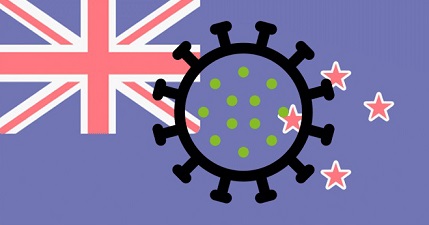COVID-19 News: New Zealand Sees Start Of Fifth COVID-19 Wave With 5947 New Infections, 284 Hospitalizations And 5 Deaths For Week Ending 12th November
Nikhil Prasad Fact checked by:Thailand Medical News Team Nov 17, 2023 1 year, 5 months, 3 days, 12 hours, 13 minutes ago
COVID-19 News: New Zealand is grappling with the onset of its fifth wave of COVID-19, marked by a concerning surge in infections, hospitalizations, and fatalities. In the week leading up to November 12th, the nation reported a staggering 5947 new cases, with 1047 classified as probable cases, and 3140 identified as reinfections. The gravity of the situation is underscored by 284 hospitalizations, 4 of which are in intensive care, along with 5 reported deaths.
https://www.tewhatuora.govt.nz/our-health-system/data-and-statistics/covid-19-data/covid-19-current-cases/
This
COVID-19 News report delves into the latest developments, shedding light on the factors contributing to the surge, expert insights, and public health recommendations.
 Epidemiological Analysis
Epidemiological Analysis
Renowned epidemiologist Professor Michael Baker, speaking to RNZ's First Up, emphasized the severity of the situation, noting that this wave is the fifth one to hit the country. He drew attention to a pivotal factor contributing to the rise in cases - the removal of the requirement for self-isolation and the conclusion of the leave support scheme in mid-August. Although self-reported case numbers had initially dropped, Professor Baker highlighted the significance of wastewater testing, which remains independent of human behavior. The current wastewater detection rate is at its highest since January, indicating a substantial underreporting of cases.
https://esr-cri.shinyapps.io/wastewater/#region=Wellington&log_or_linear=linear&period=twelveMonthsButton
Worryingly, Professor Baker also pointed out that this wave's hospitalization figures are the highest in six months. The removal of mandatory self-isolation and work subsidies may be influencing individuals to continue working even when infected, potentially contributing to the virus's spread.
Public Health Response
Te Whatu Ora, the country’s health organization, is urging those at the highest risk of infection to take proactive measures. Director of Public Health, Dr Nick Jones, stressed the importance of staying updated with COVID-19 boosters for at-risk individuals and the early use of antiviral medications if symptoms arise.
Challenging the assumption that COVID-19 is solely associated with winter, Dr. Jones suggested that the current uptick in cases occurs approximately every six months, driven by waning immunity and the evolving nature of the virus.
To mitigate the spread, free masks and rapid antigen tests (RAT) are available at participating pharmacies and RAT collection sites. Dr Jones advised individuals to consult with staff to determine the most suitable mask type for their needs.
Vaccination Challenges
Despite the availability of booster shots for individuals aged 30 and above, only aroun
d 50% of adults have received their fourth dose. Professor Baker emphasized the critical importance of getting a booster, noting that this additional layer of protection is freely available. Te Whatu Ora data revealed that, as of the previous week, fewer than 1 million fourth doses had been administered. A mere 4000 doses were delivered in the week leading up to November 3rd, emphasizing a concerning lack of uptake despite eligibility and free access to the vaccine.
Professor Baker attributed the surge in cases to "waning immunity," emphasizing that people are more vulnerable, thereby driving the current wave. He urged individuals to stay home if sick, wear masks in poorly ventilated areas, and prioritize getting a vaccination booster. With no dominant single variant at present, the surge is primarily linked to the vulnerability of the population and the changing dynamics of the virus.
Conclusion
New Zealand is facing a critical juncture in its battle against COVID-19, marked by a concerning surge in cases, hospitalizations, and deaths. The removal of self-isolation requirements and the conclusion of leave support schemes, coupled with waning immunity, have created a perfect storm for the virus's resurgence. Urgent measures are needed to increase vaccination rates, with particular emphasis on booster shots for eligible individuals. As the nation grapples with the fifth wave, adherence to public health guidelines and proactive measures are crucial to mitigating the impact and ultimately overcoming this new wave of the pandemic.
For the latest
COVID-19 News, keep on logging to Thailand Medical News.
